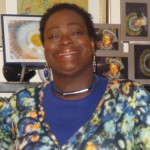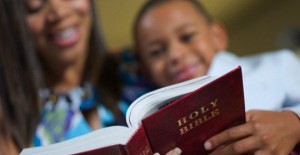Although most people own a Bible, they have not read all of the sixty–six books that it contains, and are only familiar with its stories and perhaps the books of Revelation and Psalms.
Yet the Bible has endured a struggle over the centuries to have it translated into the common language of the people. Some are skeptical about the contents of the Scriptures claiming that it is a “white man’s book” that was used to enslave people of African descent.
Based on that reasoning, some are dismissive of the Bible. Others view it as some sort of good luck charm, to be read only when undergoing trials and tribulations.
When I was growing up, it was common to see new mothers leave an opened Bible in their infant’s cot; placed at head of the cot and opened at Psalms 23, it was used as a talisman in the belief that it would protect the child from evil spirits. At other times, when a person was going through mental and emotional hardships, well meaning friends would recommend the reading of the Psalms as a source of emotional comfort or as a means of protection from supernatural harm.
Yet, despite conflicting opinions, the Bible is the oldest book known to humankind and the most widely circulated. Originally, the Old Testament was written in Hebrew and Aramaic, while the New Testament was written in Greek, the international language at the time. It covers geography, science, culture and customs, and is scientifically accurate.
It also provides information on human history, genealogies and kinships and shows the early settlement of humankind in areas that later became their homelands. In this article, we will be looking at some of the descendents of Ham and the areas in which they settled. The foundation of this information comes from the Old Testament.
There, we find the genealogies of different family lines and the birth of nations. Beginning in the first book of Chronicles, 1.9, we learn that Ham (the progenitor of the black race) had four sons, Cush (Kush), Mizraim, Put and Canaan.
Compare, Gen: 10:6. In those times, patriarchal societies were the norm, and in a patrilineal system, clan or tribal names were established through male heirs, as well as inheritance of property, land and titles. The name “Egypt” is the English for the Hebrew name, Mits.ra’-yim. Mizraim (Mits.ra’-yim) was a son of Ham and the progenitor of the ancient Egyptian nation.
In Psalms 105: 23, 27 and Psalms 106:21-22, Egypt is referred to as the land of Ham, in recognition of where many people of Hamitic origin settled. Egyptians were one of several national groups occupying the land of Ham (Africa). In Genesis 10:13-14, we learn that Mizraim’s descendents were the Ludim, Anamin, Lehabim, Naphtuhim, Pathrusim and Casluhim, thus, the Egyptian nation were made up of an amalgamated population of different family branches or tribes, all of whom had the same common ancestor. The ancient Egyptian’s name for their land was Km.t (Kemet) meaning black land.





